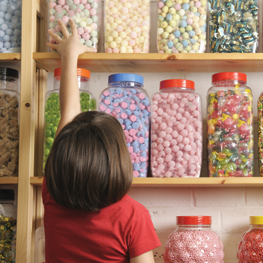



Clothes having to match, just so. Toys arranged in neat rows. Outbursts over not being able to get a task right the first time. These behaviors can indicate to parents that they may have a perfectionist on their hands, for better or worse. Perfectionists have high standards. Perfectionists can be driven to achieve. But they can also get tied up in knots over their expectations of themselves. And as psychologist Madeline Levine suggests in her book Teach Your Children Well, performance-oriented children “are so afraid of failing that they challenge themselves far less, take fewer risks and therefore limit opportunities for growth.”

I divorced 12 years ago. Being a child of divorce myself, I knew the depths of pain that divorce can bring. I never expected to divorce myself, much less see my children go through it.

As a parent, you’ve probably heard the mantra: To help your child feel a sense of control and better manage meltdowns, offer two choices you can both live with. But, what do you do if even two choices become an agonizing struggle as your child painstakingly worries over seemingly simple decisions?

Maybe your mother subtly left a pamphlet by your bed. Or your dad awkwardly coughed through an explanation of hormones. The information seemed too horrifying and embarrassing to ever discuss with your, ugh, parents.
Calgary’s Child Magazine © 2024 Calgary’s Child